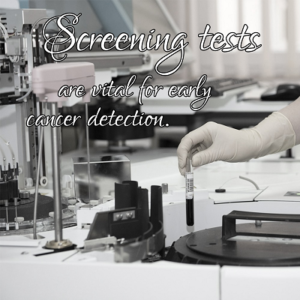 Cancer is an insidious disease and as people age, many are afraid of developing cancer. As a person ages, their risk increases, unless lifestyle modifications and other positive interventions are undertaken to prevent it.
Cancer is an insidious disease and as people age, many are afraid of developing cancer. As a person ages, their risk increases, unless lifestyle modifications and other positive interventions are undertaken to prevent it.
There are many reasons as to why this can happen. One is, as a person gets older, their immune system may have a reduced capability to respond efficiently to pathogens and preventing the formation of a tumor. This occurrence is what experts refer to as immune-senescence, and one of its consequences is the higher risk for developing diseases such as cancer.
Cancer starts to occur when cells in any parts of the body become abnormal. These abnormal cells eventually form into a mass of tissue which is referred to as malignant or cancerous tumor.
Apart from optimizing your health through a healthy diet, exercise and avoidance of toxins, experts say the greatest factor in cancer survival is early detection.
Cancer Screening Tests
The following is a list of screening tests that can be scheduled on a regular basis to help prevent or detect cancer in its earliest stage.
Breast Cancer
- Mammogram – This is an x-ray of the breast. It is designed to detect any cancerous tumors that may be too small to feel by hand.
- Clinical Breast Exam – A health care professional checks the breasts and underarms for the existence of lumps and other unusual changes.
Colorectal Cancer
- Fecal Occult Blood Test – This test requires the patient to submit a stool sample which is sent to the lab for examination. The presence of hidden blood in the person’s stool can be a sign of cancer. Doctors recommend undergoing a fecal occult blood test at least once a year or every two years if the person is 50 years of age or above. Research shows that colorectal cancer is mostly diagnosed among individuals who are 50 years old and above.
- Sigmoidoscopy – A thin, flexible tube will be used by the doctor to take a look inside the person’s lower part of the colon and rectum to check for any presence of abnormal growths. If this test is done every five years the risk of getting colorectal cancer can be reduced.
- Colonoscopy – Doctors recommend that people undergo a colonoscopy once every ten years. This test works a lot like the sigmoidoscopy, the only difference is that a colonoscopy allows the doctor to see the entire colon of the person.
Prostate Cancer
- Digital Rectal Exam – This exam allows the doctor to insert his gloved finger into the person’s rectum to be able to feel the prostate. If the doctor detects some hard or lumpy areas he will then conduct further examinations to be able to confirm if the patient has cancer.
- PSA or Prostate Specific Antigen Test – This is when the amount of PSA is measured through the use of blood samples. If the person’s PSA is found to be higher than normal, then it is also possible that prostate cancer cells are present. Having high levels of PSA is one indicator that the person has a problem in his prostate.
If you are diagnosed with cancer, it is always wise to get a second opinion. That way you may also be given different treatment options.
Growing older does not mean getting cancer, however taking precautionary steps, such as making healthy lifestyle choices and taking regular screening tests, is a great start to reducing your risk and for the doctors to make an early diagnosis.






